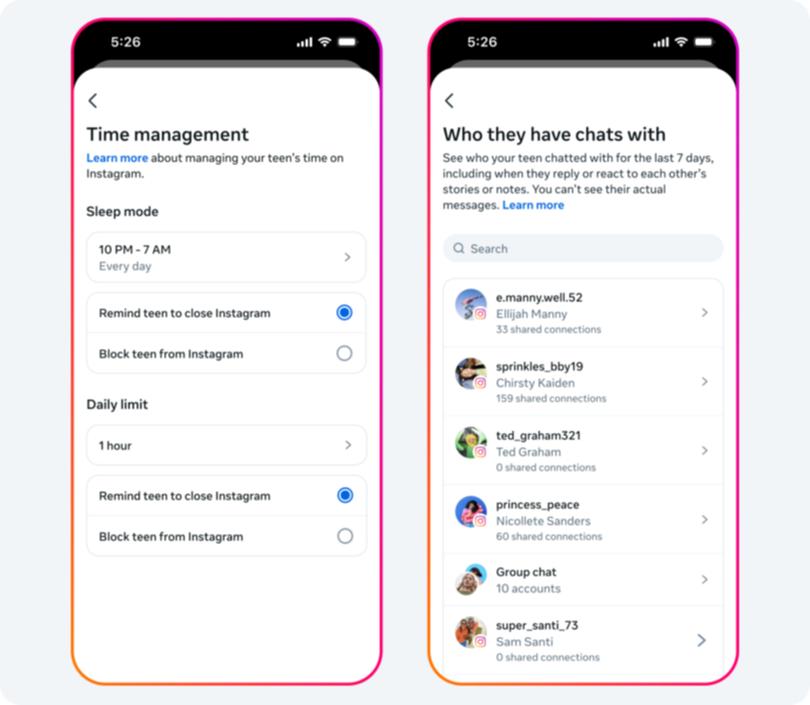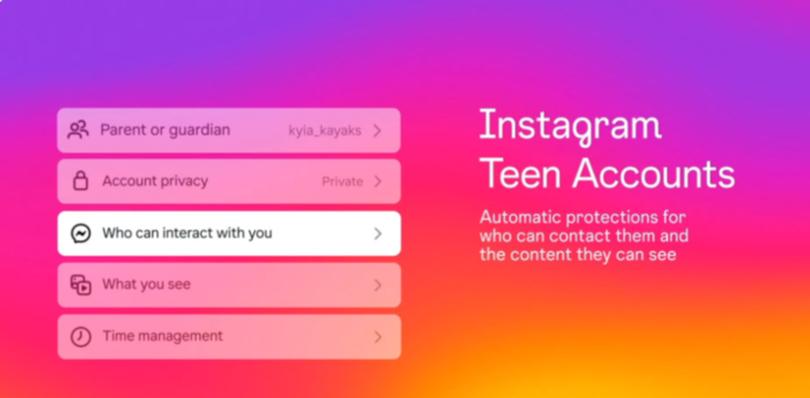Instagram introduces ‘teen accounts’ across Australia amid calls for better online safety for kids
Meta has announced tough new restrictions for teenage Instagram users in Australia.

Meta has announced tough new restrictions for teenage Instagram users in Australia.
Teens will be moved on to a version of the popular app preloaded with content restrictions, which the company hopes will improve online safety following concerns from parents.
There will also be a “sleep mode” feature which is activated between 10pm and 7am, preventing teens from receiving notifications.
Sign up to The Nightly's newsletters.
Get the first look at the digital newspaper, curated daily stories and breaking headlines delivered to your inbox.
By continuing you agree to our Terms and Privacy Policy.Meta’s overhaul comes following The West Australian’s Meta Murders investigation, which highlighted how the platform’s algorithm was pumping videos of people being murdered and tortured to people of all ages, including kids.
The ‘teen accounts’ will limit not only what they can see, but grant parents more insight into how kids navigate the online world.
It follows intense calls from around the world to boost children’s online safety.
The new changes will impact all new accounts owned by kids, while existing users under 16 years of age will be automatically moved into the new ‘teen’ accounts in the next 60 days across the UK, US, Canada and Australia.

Teenagers who create new accounts will be placed into accounts with the strictest privacy settings, which prevent adults, who aren’t followed by the teen, from sending them messages.
And any user under 16 will need to have their parent’s permission to change their individual settings. Instagram says they dont allow anyone under 13-years-old on the platform.
This will also grant parents insight into who their children are chatting with, but not what the messages say.
The tech giant championed new features including limiting who can contact them while also giving parents powers to block their kids from using the platform at any given hour.
Anyone aged 16 or 17 will also be placed into a teen account, but will be able to change their individual settings without a parent’s consent.

A new anti-bullying feature will also be introduced, which will aim to prevent offensive words in comments or message requests.
Meta acknowledged that children may still lie about their age and circumnavigate their verification tools, which currently require young people to provide proof of age if they try and change their date of birth to that of an adult.
The company said they are testing new age verification technology in early 2025.
The new features are expected to be completely rolled out around world in January — impacting millions of users.
Head of Instagram Adam Mosseri said the new features had been in the works for over a year.
The changes come over a week since Prime Minister Anthony Albanese announced he would introduce legislation to impose minimum age limits for the use social media by the end of the year.
The Government has been questioned by tech and mental health experts over the impact of the government imposing an age ban.
